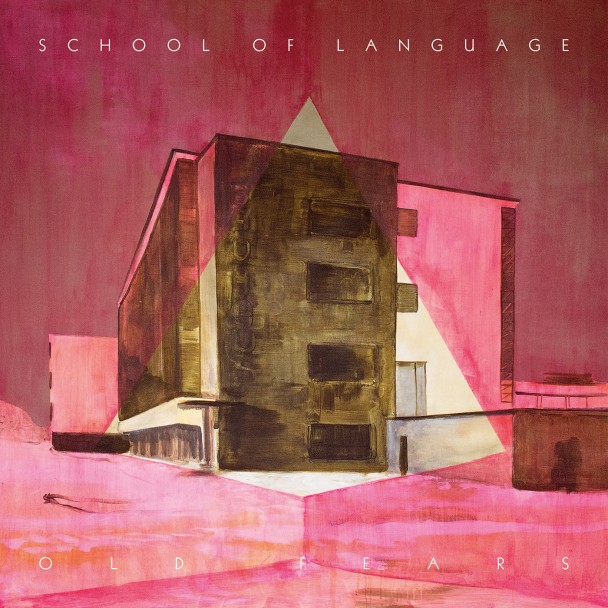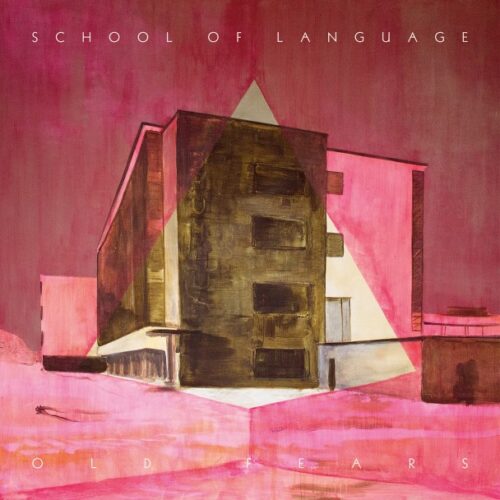It is now nine years since Field Music’s self-titled debut album, which have seen a further three records as well as one solo album each (until now) from David and Peter Brewis. In that time (enough for them to become canonical in discerning circles) those who have followed them from the start can both assess the trajectory of quality for the Wearside brothers, and glean an understanding of exactly which Brewis brings what qualities to the whole. David, the younger, responsible for this excellent latest addition to their catalogue as School Of Language, is slightly funkier, with sharper, leaner edges to his songs. More experimental, the better singer, a more urgent energy. Peter, who is certainly in the band for Old Fears, is a softer presence, more melodic, the more conventionally satisfying songwriter, and for those who have caught Field Music live, arguably the superior drummer.
Old Fears is, then, a notably moodier, less accessible work than Field Music’s last album Plumb. Expression is achieved by exploring what is possible with single notes – be they on synthesisers or ringing electric guitar – and fairly straightforward rhythms, rather than the harmonising, emotionalising effect of an ensemble. Rather than Field Music’s prog touches, this leans towards the comparative rigidity and hardness of Talking Heads tunes (particularly on ‘Dress Up’). Mixed with this is David’s voice, which takes to the falsetto range with more rigour than in previous years.
Though the album’s minimalism locates this as distinctively the work of the younger brother, it opens with a passage that encapsulates the essence of general Brewis-ness to perfection. ‘Distance Between’ begins with a synthesiser riff establishing a bassline, followed by an immediately recognisable, loud and disarming drum part and then the one-note guitar refrain that continues throughout what is, like nearly all of these, a very short song.
The opening song’s title also perhaps marks Old Fears’ intention, musically speaking, to emphasise the considerable space that is to be found on this record – that between instruments, parts and vocal lines. It is an album of extremely sophisticated songwriting, which may lead less imaginative and restrained artists to draw more attention to such cutting melodies with more extravagant production. ABBA, Brewis certainly is not. Each release from the brothers, whether it be Field Music, School of Language or The Week That Was (Peter’s solo guise), sounds formidably economical (they are well documented as being extremely frugal financially as well as aesthetically) yet achieves a heightened pop complexity. Old Fears may be either Brewis’ most skeletal LP yet.
One of David’s most fascinating preoccupations on School Of Language’s 2008 debut Sea From Shore was his experimentation with vocal sounds – preferring cadence over obvious meaning, the sound and feel of words over storytelling. That album began with Brewis playing around with a series of curious vowel sounds. His exploration of this is not so much to the fore here, but twice he does return to the ploy of using vocal patterns to create rhythm and texture. On ‘Suits Us Better’, Brewis’s bass and percussion comes from his mouth’s own noises, and it’s very nice, though somehow familiar. It is on ‘Moment Of Doubt’ that he achieves something supreme with this approach, setting a startling mood with his falsetto in a somewhat operatic way before falling away into the album’s best song. For all the recognisable touchstones on Old Fears, ‘Moment Of Doubt’ offers something intriguingly new.
Plumb, Field Music’s first post-Cameron album, released in 2012, was notable in that it made slightly more overt the ideological murmurings that simmered on Measure and Tones Of Town. Nothing too opinionated was said, just vignettes of existential angst using small-town, day-to-day imagery. Here, a similar disquiet threads its way through the album, particularly on ‘Moment of Doubt’ (with the repeated line, "Keep below the firing line") and naturally, ‘Between The Suburbs’. The grim parochial subtext that runs throughout Brewis’ albums can often be overwhelmed by the originality of his music; the combination of the two make him an increasingly brilliant proposition.



